Note: This text was created with the help of AI.
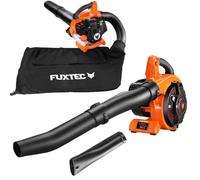

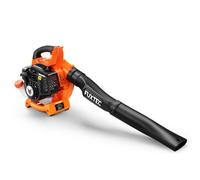
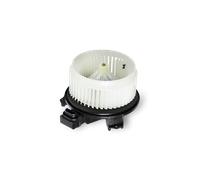
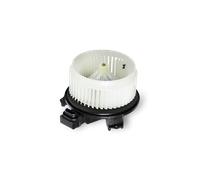
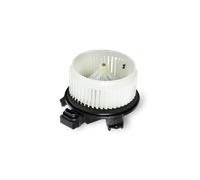
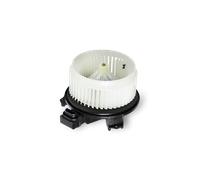
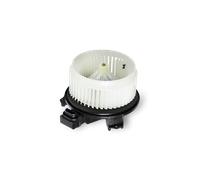
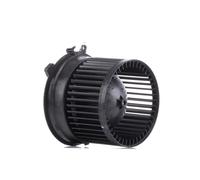
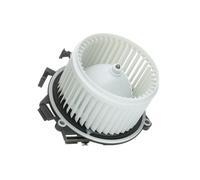
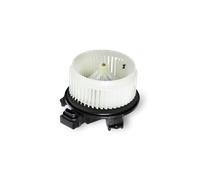
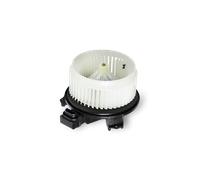
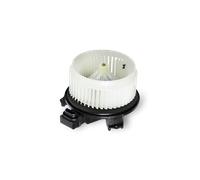
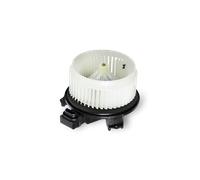
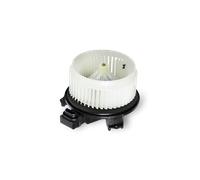
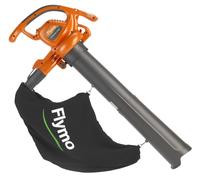
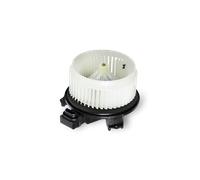
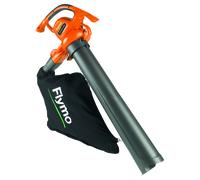
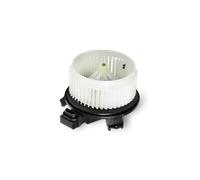
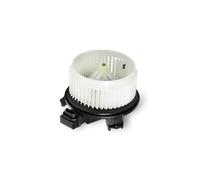
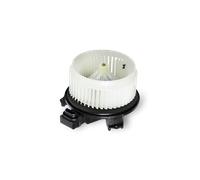
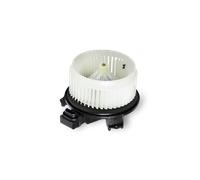
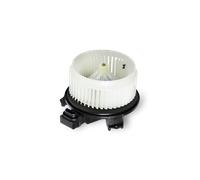
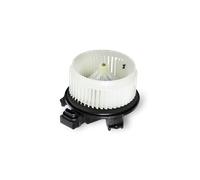
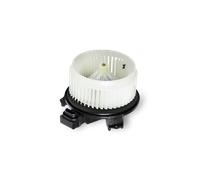
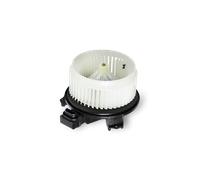
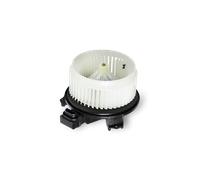

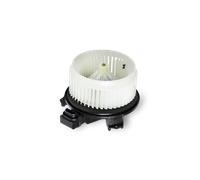
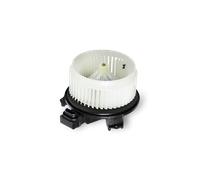
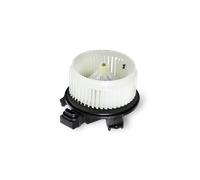
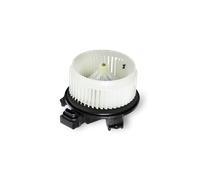
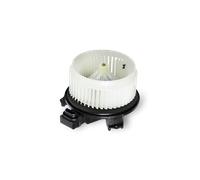
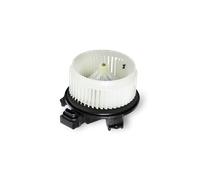
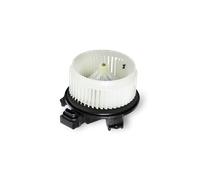

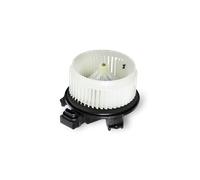
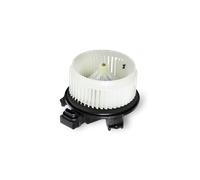

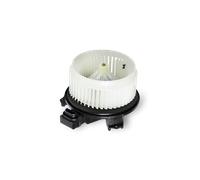
- 1
- 2
- 3
- 4
- 5
- next page
Exciting Offers on Leaf Blowers
Many leaf vacuums are also equipped with a shredding function, which immediately shreds the vacuumed leaves as well as small branches or hedge residues in a compost-friendly manner, so that you can clean up more area with one suction operation than without the shredder.
Before you look at the power in detail, you should assess what work you want to do with the leaf blower or leaf vacuum. If you buy a more powerful device, you can use it not only to collect leaves, but also small branches.
As a general rule, petrol engines with fewer watts can deliver the same performance as high wattage electric leaf vacuums and leaf blowers.
An electric leaf vacuum should offer around 2000 watts to easily loosen the leaves from the ground and suck them in. A leaf vacuum with a petrol engine works differently again, so it is sufficient if it has 0.75 kilowatts. The combustion engine is more efficient in itself, but not more environmentally friendly. You can therefore choose a device with less power without hesitation and achieve the same speed.
Battery-powered devices have the lowest power. While manufacturers use modern and equally reliable batteries, they often have to sacrifice performance to ensure adequate battery life. Also, when choosing a blower, keep in mind that different units of measurement apply depending on the design:
For leaf blowers that use an electric drive, the power is always expressed in watts (W).
For leaf blowers with a petrol engine, the power is always defined in kilowatts (kW).
The higher the engine power, the higher the speed. A leaf blower that has a power of 2500 watts can reach up to 300 kilometres per hour (km/h) of air speed during operation, which is an almost unimaginable speed. A device with a motor with 3000 watts of power is for real professionals and even reaches a speed of 418 km/h.
Basically, you have the choice between petrol, electric and battery-powered versions of leaf vacuums. In the following, we will tell you the characteristics of the different drive types:
| Operating mode | Properties |
| Electrically operated |
|
| Drive by rechargeable battery (lithium-ion) |
|
| gasoline-powered |
|
When choosing oil, you should first check your leaf vacuum's owner's manual to determine what fuel mixture you need. It's better to be safe than sorry so you don't damage your leaf vacuum with the wrong type of fuel.
The engine will usually only run properly and for as long as possible if you choose good quality oil and fuel. If you do not follow the manufacturer's instructions and deviate from the mixing ratio, for example, this can lead to damage to your device.
For engine oil, you should choose an oil with the TC classification. Sometimes the manufacturers of the various gardening tools even offer their own types of engine oil. If you have the option of using this type of oil, it is advisable to do so, as these oils have been specially adapted to the engines of the gardening tools to ensure a particularly long engine life.
When choosing the right petrol, you should also make sure that it has an octane rating of at least 90 RON. As petrol is harmful to the environment, you should also consider using unleaded petrol. This is not only beneficial for the environment, but also for your health, as the engine emits fewer harmful exhaust gases.
You can find all the different kinds of special garden machinery fuel and oil, as well as replacement batteries for electrically operated leaf vacuums in our category “Garden Machinery Accessories”.
It is not uncommon for leaf vacuums and blowers to reach a noise level of 85 decibels (dB), and some gasoline-powered leaf vacuums even reach 115 dB.
If you consider that long-term hearing damage can occur from a continuous noise level of 80 decibels, it is not surprising that under certain circumstances leaf vacuums and leaf blowers can be banned.
The Federal Immission Control Ordinance classifies leaf vacuums and leaf blowers as noise level II. This means that they are potentially capable of causing medium and long-term hearing damage. Users of such equipment therefore usually wear ear plugs or ear defenders while working. These can be found in our category “Occupational Safety”.
Generally speaking, battery-powered leaf vacuums are considerably quieter than petrol-powered models and you can buy a variety of vacuums with different suction and blowing levels.
Yes, while cordless leaf vacuums are so small and compact that you can easily carry them over your shoulder, there are also much larger leaf vacuums. Mobile leaf vacuums are characterized by a strong motor power as well as a collection container with a large volume.
In addition, a mobile leaf vacuum promises you a particularly convenient use, because you simply push the device in front of you, whereby the leaf collector picks up the leaves. At first glance, mobile leaf vacuums therefore look like lawn mowers. There are suction pipes in the immediate vicinity of the rollers, which suck in fallen leaves, stones and branches.
Alternatively, mobile garden vacuums may also be equipped with a separate feed hopper so that larger branches and debris can be sucked in. Although you can also use mobile leaf vacuums in a private environment, the typical areas of use are more in the commercial sector.
Since neighbours, passers-by or even animals are at the mercy of the noise pollution caused by leaf vacuum cleaners and blowers, there are recommendations on the use of these devices. This includes, among other things, a local and/or time-limited ban on the use of these implements. The times that environmental health officers recommend are as follows:
- on weekdays (Monday to Friday): from 8am to 6pm
- on Saturdays: from 8am to 1pm
- on Sundays and public holidays: don't use leaf vacuum cleaners and leaf blowers
These recommendations are for the UK. If you don't know what the operating hours in your home country are, you should check with your local government.
Also take in consideration that it is illegal to blow leaves from a private ground to a public ground.
Depending on what you want to use the vacuum for, you will find different models with different focuses. For example, there are leaf vacuums that are primarily designed for work in rock gardens and gravel beds.
In general, most leaf vacuums are suitable for areas in your garden, in the yard, in front of the house as well as for parks, playgrounds and sports fields or paved surfaces. Leaf vacuums are therefore flexible to use and you are not tied to a specific location - especially with battery-powered devices.
That depends on what you want to use your device for. Unlike a leaf vacuum, a leaf blower does not leave behind a clean surface when the work is done, because it scatters the piles of leaves in the area. You then need to rake the foliage together and put it in a garden waste bag or a wheelbarrow.
Therefore, a leaf vacuum with an airflow reverser is particularly recommended. With these models, the leaves are first blown together and then sucked in. This works with the help of a switch that you can set to the desired function and thus either suck or blow. This turns your leaf vacuum into a leaf blower in no time at all, keeping the street and your yard clean not only in autumn, but also in spring and summer. The blowing function eliminates the need for a broom, as dust, dirt and objects can easily be blown away or sucked into the device by the suction function.
Exciting Offers on Leaf Blowers
If you're on the hunt for a new leaf blower, you're in luck! At pricehunter.co.uk, you can find a wide variety of options tailored to meet your gardening needs. With numerous brands and types available, you’re sure to discover the perfect leaf blower that fits your budget and requirements.Types of Leaf Blowers
When considering a leaf blower, it's essential to understand the different types available on the market. Each type is designed for specific tasks and has unique features that cater to various user preferences.- Compare leaf blowers - Choose from gas, electric, or battery-operated models.
- **Gas** - Powerful and suitable for larger spaces but can be noisy and require more maintenance.
- **Electric** - Ideal for smaller gardens, often lighter and quieter than gas models but may limit mobility due to cord length.
- **Cordless/Battery** - Offers great convenience and mobility, making it easy to maneuver around your garden without being tethered to a power source.
- **Backpack** - Perfect for intensive jobs, distributing weight evenly and freeing up your hands for ease of use.
Popular Brands
Choosing a reputable brand can make a significant difference in the quality and longevity of your leaf blower. Well-known brands often provide better customer support and warranty options.- Stihl blower price - Known for reliability and high performance, especially in professional-grade equipment.
- **DeWalt** - Offers durable and powerful options, perfect for both home and commercial use.
- **Makita** - Renowned for their lightweight designs and battery efficiency, ideal for residential areas.
- **Draper** - A solid choice for budget-conscious shoppers without compromising quality.
- **Black & Decker** - User-friendly options great for beginners and casual gardeners.
Features to Consider
When exploring leaf blowers, specific features can enhance usability and efficiency. Understanding these will help you make an informed decision.- Leaf blower price - Look for adjustable speed settings for better control during operation.
- **Weight** - A lighter model can reduce fatigue, especially during extended use.
- **Noise Level** - Consider quieter models if you live in a residential area to avoid disturbing your neighbors.
- **Air Volume and Speed** - Higher air volume and speed ratings will improve leaf-moving efficiency.
- **Ergonomics** - A comfortable grip and easy-to-access controls contribute to a more pleasant experience.
Usage Scenarios
Leaf blowers can be employed in various settings beyond just clearing leaves. Knowing where and how you plan to use your leaf blower is critical when selecting the right model.- Backpack leaf blower sale - These are ideal for larger properties and commercial landscaping work.
- **Garden Maintenance** - Quick clean-up of leaves, grass clippings, and debris.
- **Snow Removal** - Some models can even assist in moving light snow during winter months.
- **Construction Areas** - Great for clearing dust and small debris from job sites.
- **Patio & Driveway Cleaning** - Efficiently blow away dirt and leaves, enhancing curb appeal.
Accessories That Enhance Performance
Investing in the right accessories can greatly enhance the performance of your leaf blower. They can increase functionality and make your gardening tasks more efficient.- Makita leaf blower battery - Ensure you have extra batteries for cordless models to extend usage time.
- **Vacuum Kit** - Some models come with attachments that allow them to function as a vacuum, collecting leaves and debris.
- **Nozzle Attachments** - Different-shaped nozzles can help focus airflow for better efficiency.
- **Hearing Protection** - Essential if you opt for a gas-powered model to reduce noise exposure.
- **Protective Gear** - Always a smart choice when operating powerful machinery.
Note: This text was created with the help of AI.